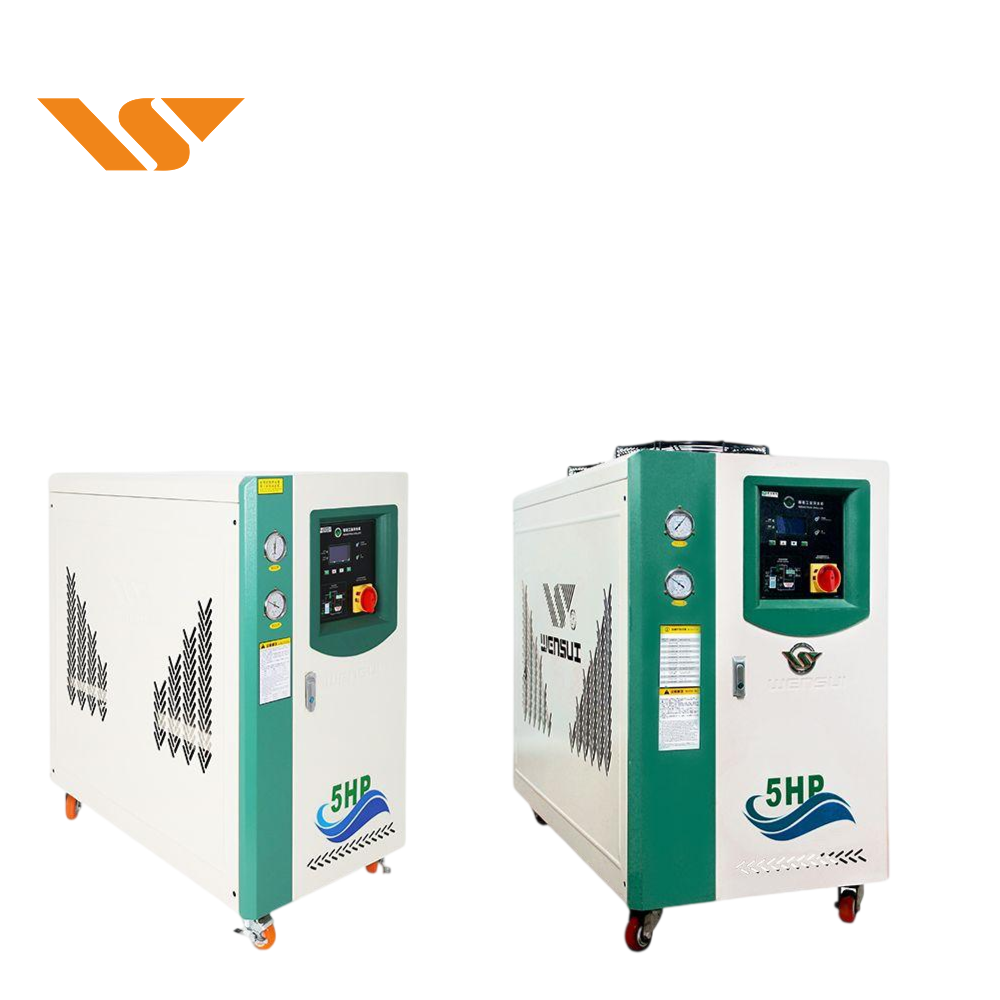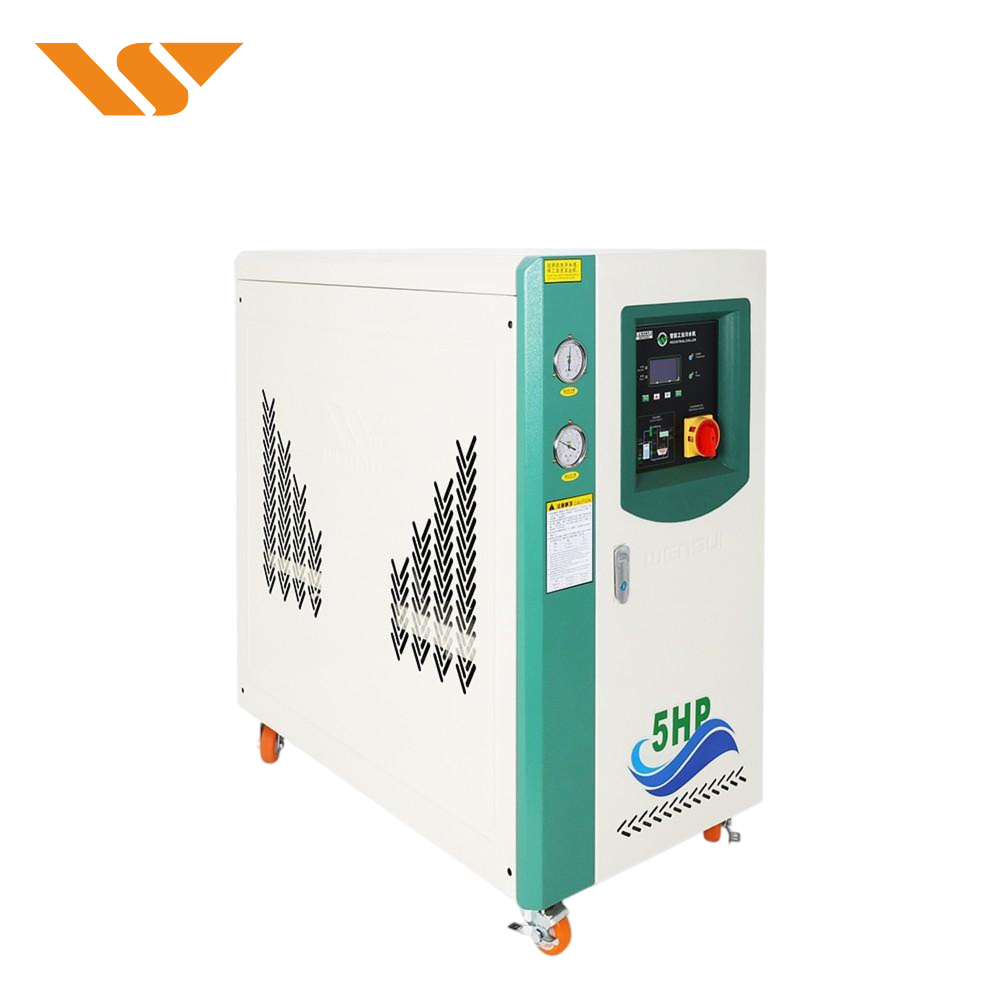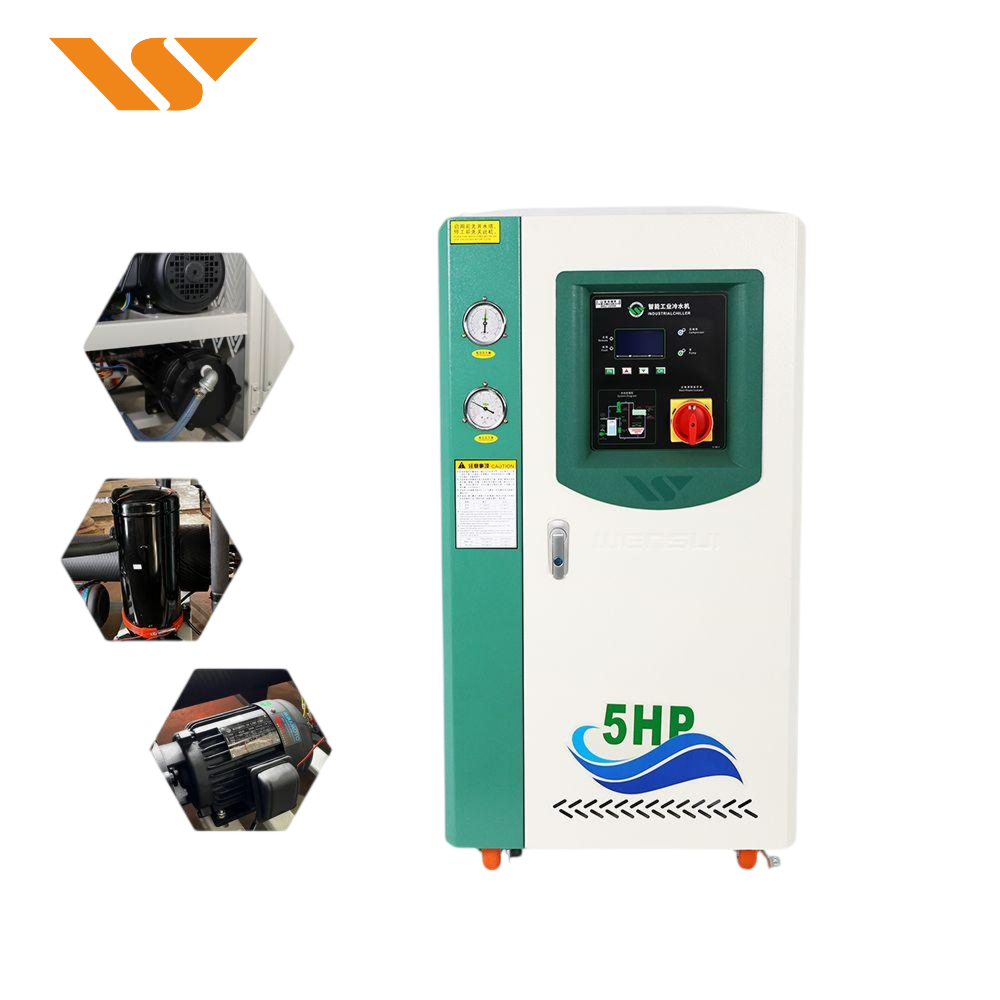The Role of Chillers in Industry: Types and Practical Applications
2023-12-21 Page view:
What is an industrial chiller?

An industrial chiller is a cooling system designed to remove heat from a process or equipment in an industrial setting. It is used to maintain appropriate temperatures and prevent overheating in various
applications such as manufacturing, food processing, chemical processing, and power generation.
Industrial chillers work by circulating a refrigerant, typically a liquid like water or a specialized coolant, through a system of coils or tubes. The refrigerant absorbs heat from the process or equipment and carries it to a condenser, where it is cooled and then returned to the system. This continuous cycle of heat absorption and dissipation allows the chiller to remove heat from the industrial process and maintain the desired temperature.
Industrial chillers come in various types and sizes, including air-cooled and water-cooled systems. Air-cooled chillers use fans to dissipate heat from the condenser, while water-cooled chillers utilize cooling towers or water sources to cool the refrigerant. The capacity of an industrial chiller is measured in tons or kilowatts, indicating its cooling power.
Overall, industrial chillers play a crucial role in maintaining efficient and reliable operation of industrial processes by regulating temperatures and preventing equipment damage due to excessive heat.
What are the 2 types of chillers?
The two main types of chillers commonly used in industrial applications are air-cooled chillers and water-cooled chillers.
Air-cooled chillers: These chillers use ambient air to cool the refrigerant in the condenser. They have built-in fans that blow air over the condenser coils, dissipating heat and lowering the temperature of the refrigerant. Air-cooled chillers are typically more compact and do not require a separate cooling tower or water source for operation. They are commonly used in applications where water availability or space constraints are a concern.
Water-cooled chillers: These chillers use water as a coolant to remove heat from the refrigerant in the condenser. They typically have a separate cooling tower that circulates water to cool the condenser coils and return it to the tower for further cooling. Water-cooled chillers are generally more energy-efficient compared to air-cooled chillers, as water has better heat transfer properties. They are commonly used in larger applications where higher cooling capacities are required.

Both types of chillers have their advantages and disadvantages, and the choice between them depends on factors such as the cooling requirements, available resources, space limitations, and energy efficiency considerations.
Why chiller is used in industry?
Chillers are used in various industrial applications for several important reasons:

Temperature Control: One of the primary reasons for using chillers in industry is to precisely control and maintain temperature. Many industrial processes require specific temperature levels to ensure product quality, consistency, and safety. Chillers help maintain these temperatures within the desired range, which is critical in industries such as pharmaceuticals, food and beverage, chemical processing, and plastics manufacturing.
Heat Removal: Industrial processes often generate excess heat that needs to be removed to prevent equipment overheating and maintain optimal working conditions. Chillers are designed to remove this heat efficiently, ensuring machinery and equipment operate at the required temperatures, which can enhance productivity and extend equipment lifespan.
Process Cooling: Chillers are used for process cooling in various industries, including metalworking, plastic molding, and electronics manufacturing. They help cool equipment and machinery used in these processes, preventing overheating and maintaining consistent production output.
Product Quality: In industries like food and beverage, maintaining precise temperatures is essential for preserving product quality and safety. Chillers are used to cool ingredients, mixtures, and finished products, ensuring they meet quality standards and remain safe for consumption.
Energy Efficiency: Chillers can be designed to operate efficiently, reducing energy consumption and operational costs. Energy-efficient cooling solutions help industries save money on utility bills while minimizing their environmental footprint.
Comfort Cooling: In large industrial facilities, offices, and commercial buildings within industrial complexes, chillers are used for comfort cooling to maintain a comfortable and safe working environment for employees. This is particularly important in regions with hot climates.
Environmental Control: Some industrial processes require strict environmental conditions, such as humidity control. Chillers can be used in conjunction with other equipment to maintain these conditions, ensuring the success of processes like cleanroom operations, research laboratories, and pharmaceutical manufacturing.
Equipment Protection: Industrial equipment, especially electronics and machinery, can be sensitive to temperature fluctuations. Chillers help protect these investments by ensuring equipment operates within safe temperature limits.
Energy Recovery: In some cases, chillers can be integrated with energy recovery systems to capture and reuse waste heat, improving overall energy efficiency and reducing operational costs.
In summary, chillers are essential in industrial settings to maintain temperature control, remove excess heat, ensure product quality, enhance equipment longevity, and improve energy efficiency. They play a crucial role in a wide range of industries, helping to optimize processes and maintain optimal working conditions.



